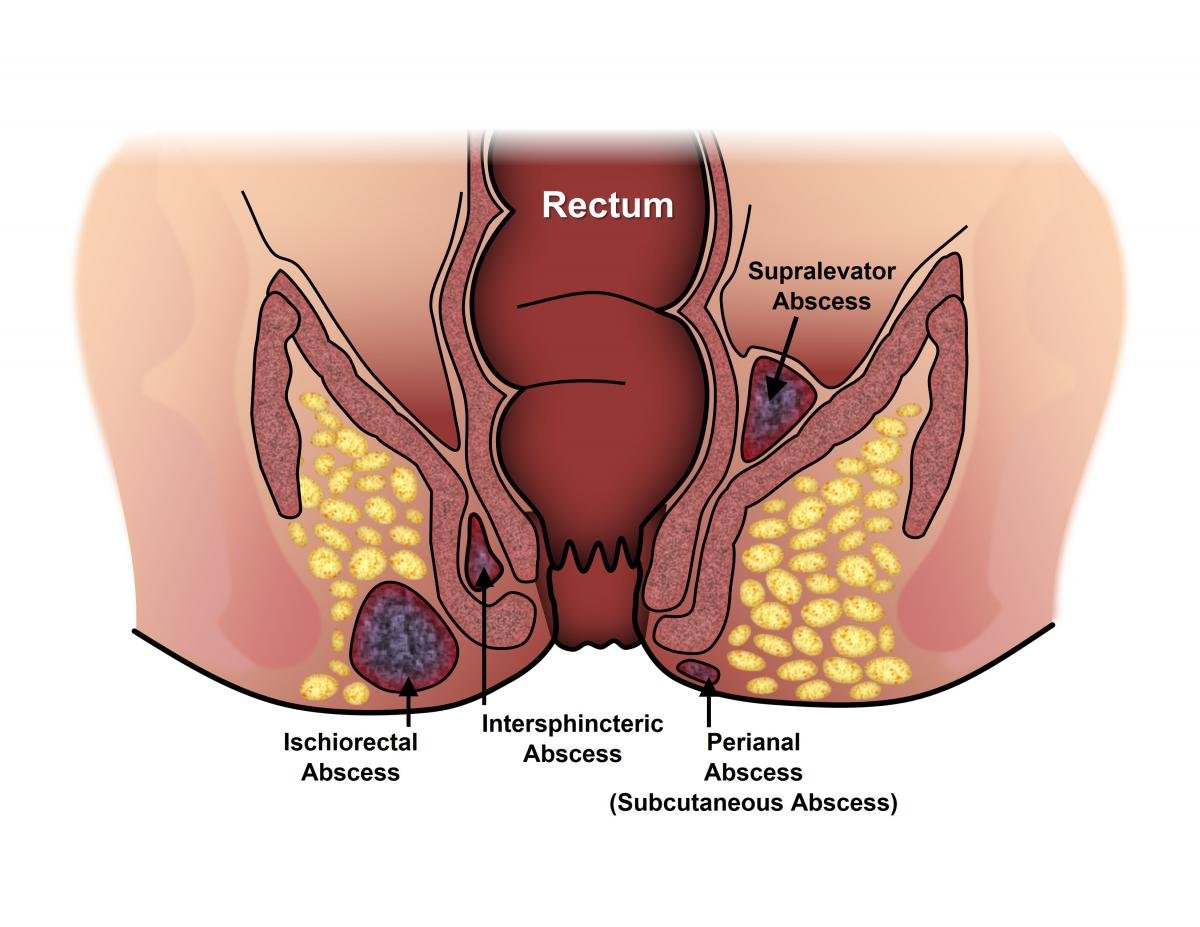Anal Fissure
The anal fistula is a narrow abnormal tunnel lying between the peri-anal skin and the rectal mucosa, which is formed due to recurrent infection near the anal region. Typically, an anal fistula connects the anal canal and the skin around the anus. Anal fistulas are also associated with swelling, pain and discharge of sticky pus-like fluids, at times containing blood, from the opening of the skin.
How does this happen?
There are several glands are present inside the anus that secretes mucus for ease of passage of stool. At times these glands get blocked and eventually gets infected by various bacterias and thus forming anal abscesses. incomplete healing of the infected anal glands leads to retention of the infected fluid, pus etc. Eventually, the infection gets extended to form a tunnel and form an outlet through the skin. This tunnel track then becomes vulnerable to recurrent infection.
These abscesses are more common in people with diabetes & immune deficiency or can be indicative of some other systemic disease like Crohn’s disease, Tuberculosis even rectal cancer.

Symptoms of Anal fistula
- Pain, itching and swelling around the anus
- Pain during bowel movement
- Oozing of Blood with foul-smelling mucous-pus from the skin outlet.
- The patient feels slight relief from pain after drainage of pus
- Irritation of skin around the anus.
- Occasionally fever or feverishness may be seen.
How to confirm the diagnosis?
A careful examination of the area around the anus is of prime importance. Look for an opening on the skin, which may discharge offensive sticky liquid by pressure. Clinically a doctor may use an anoscope to see inside your anus.
At times additional test like fistulogram, ultrasound and MRI of the anal area through contrast may also be needed to get better clinical details of the fistula tract. Rarely biopsy may be needed to clear the suspicion of other systemic diseases.
Can I do anything as a preventive measure?
Yes! Please follow the following
- Keep the anal area dry
- Drink plenty of water
- Take more fibrous food
- Avoid straining during defecation
- Regular exercise
- Increase personal hygiene
- Keep Blood sugar under control.
How Homoeopathy can be helpful
A chronic, developed rectal fistula is a surgical condition and should be managed accordingly. However, there are numerous examples of patients, where Homoeopathic medication have shown significant improvement. The primary objective of the treatment is the identification of the individual’s condition and controlling the recurrent infection and development of further abscesses. No other system of medicine is proven to be effective to control the tendency of frequent infections.
We selected Homoeopathic correct doses of medicines and repetition with properly followed the doctor’s pieces of advice including the dos’ and don’ts can help the patient to achieve significant improvements without any surgical measure.
However, the results of the treatment vary for each patient, since it depends on various parameters.
There are a large number of medications that are frequently prescribed depending on the patients’ condition and symptomatology; like Silicea, Berberis Vulgaris, Causticum, Calcarea Phosphorica, Nitium Acidum, Thuja Occidentalis, Staphysagria, Carbo Vegetabilis etc.
The right medication, potency and dosages can be selected by an experienced physician only and should never be self-prescribed without knowledge of the Homoeopathic principles and therapeutics
So why wait, we are just a call away.